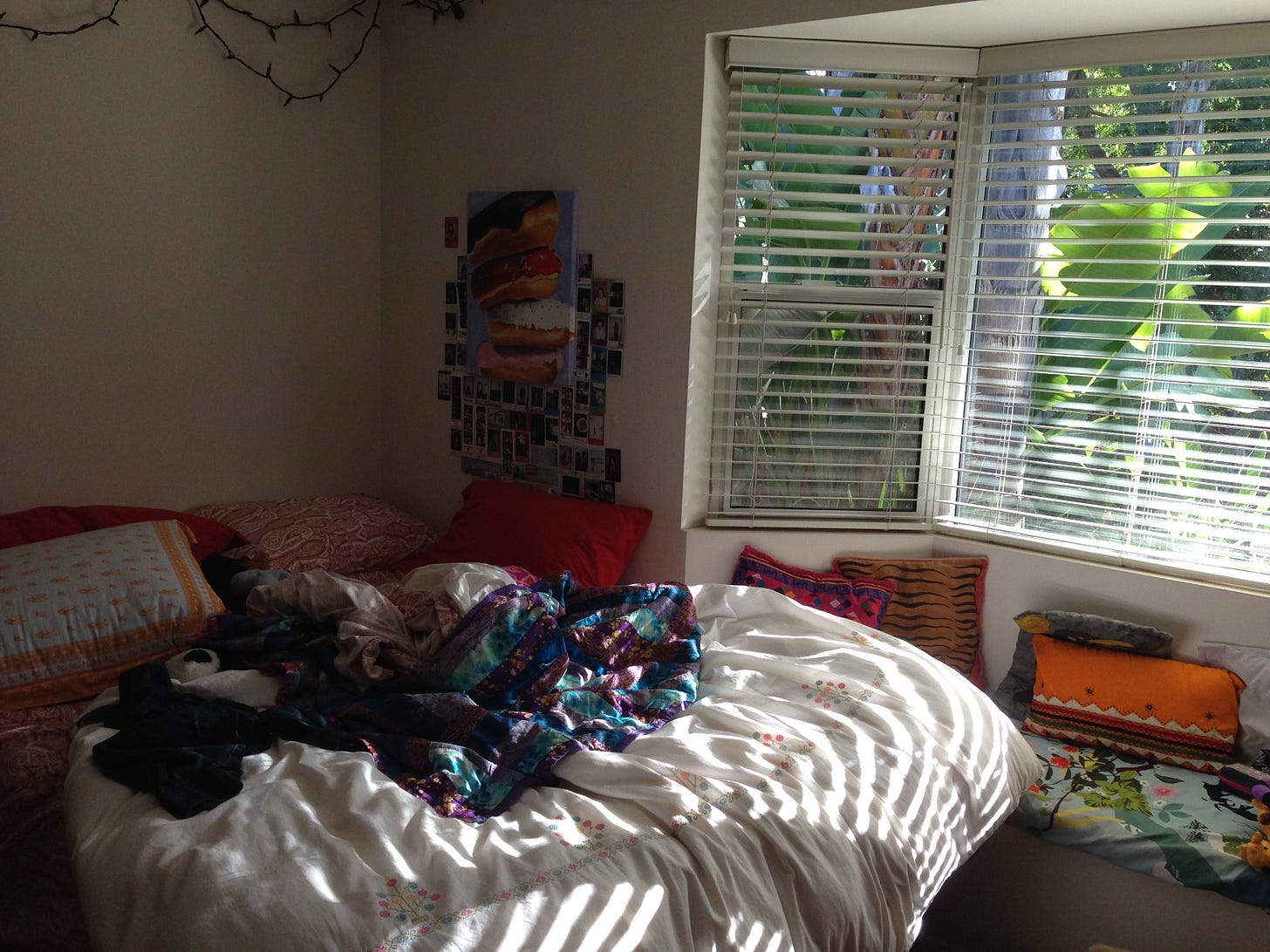As I write this, I’m coming to the end of an extremely self-indulgent two-month trip to Europe, one of the work-from-anywhere, digital-nomad variety that we (justifiably) love to hate.
I’ve spent the last months — nay, years — scheming to have a job of this kind, where I get to jet off to beautiful places and spending my mornings climbing waterfalls or getting my nails done, writing for hours from remote cabins or bungalows or trains or airport terminals or wine bars or any of the like, should I choose. I’ve passed hours on the phone with my lawyer and my accountant and my boss and my parents, giving myself gastrointestinal problems from the anxiety of leaving my full-time job and becoming fully responsible for myself. This is exactly the life I wanted, and now I’ve got it.
Yet if I’ve drawn one conclusion from this entire ordeal, it’s that I just want to move back into my childhood home.
Please don’t misunderstand, I’m having an incredible time. Every day I want to weep with appreciation for what the day has brought me. Friends and their families who have opened their homes to me, cooked for me, brought me things, driven me around, texted me to make sure I arrived safely. A friend’s mother brought me to the emergency room and then went and got a splint and painkillers from the pharmacy for me when I arrived in Paris with a sprained ankle. In Bern, another friend’s uncle and aunt slept on the couch in their own home so that we’d have beds and then made tom yum soup from scratch because I had offhandedly mentioned that I was in the mood for Thai. In Florence and Rome, I couldn’t even begin to name all the ways I’ve been shown care and hospitality, people’s cousins and parents and childhood friends taking care to ensure that I’m comfortable, that I’m fed, that I have a warm coat and a ride to the airport. I’m overwhelmed by gratitude.
But in being welcomed so thoroughly into others’ homes, I find the absence my own sense of belonging more apparent than ever. My colleague Sara brought me to her regular circolo (essentially a community center) that she and her friends have been frequenting for years, where the older people go and take dance lessons and the younger people stop by to run into each other and gather for their pre- and post-dinner drinks. We’ve just paid €5 for our Select spritzes when an older lady stops by our table to talk about how she cooks her tortellini. Cars full of bellowing men and eye-rolling women honk at each other as they pull up to the parking lot, like we used to at school on our way back after lunch.
Suddenly, I’ve never regretted more the moment that I left Santa Barbara, cursing myself for not trying harder to build a life for myself in the place I was raised. What am I doing here, on the other side of the world, romanticizing somebody else’s home, chatting with other people’s cousins and grandparents when I’ve left my own far behind? What the hell have I done?
When I moved away from home for the first time, I was convinced that I would never reach any form of self-actualization in Santa Barbara. I felt only shame toward the person that I had tried — and perhaps, unfortunately, succeeded — to become during my life there. The place seemed so provincial when I was eighteen and full of things I thought I knew. No one reads. There’s no nightlife. I rejected all but a few select relationships I had with the people I’d grown up with, some for good reasons, others maybe less so. I bought a pair of black heeled boots from Zappos and took an Uber to a club in Meatpacking, and from that moment on, I was sure there was nothing left there for me.
Now I feel like a houseplant cutting attempting to grow out of nothing but water, one with vines that have grown long toward the sunlight, but whose roots just dangle there, unfixed. I try to remember what it felt like once to drive past that one lookout point or go to that one person’s beer pong tournament because you knew someone you knew would be there. I remember whispering in the hall at my old dance studio, pissing myself with laughter over a decade’s worth of inside jokes. Now, I call my parents on FaceTime — it’s Easter, and they pass the phone around to all the aunts and uncles and cousins at lunch. My mom means well when she texts me later, “Everyone asked about you and sends their love!” I wonder if it’s too late to get any of this back.
At the dinner table, Sara’s boyfriend Filippo argues that the biggest difference between Italians and Americans is that Italians are less willing to move, and therefore more predisposed to make friends with their neighbors, to stay in touch with their childhood friends. Americans, he argues — and here, he takes me as an example — like to go far and wide, even within their own country. It’s a natural trade-off then, that we wouldn’t have the community that Italians have. Someone protests that it’s rewarding to see the world though, to have a sense of discovery and fearlessness. Filippo concedes that it is. Privately, though, I wonder if it is really a worthy substitute.
A part of me persists in believing that one day in the not-too-distant future I’ll move back to Santa Barbara and it will be the same way I left it. My friends and I will all pile into one of our cars and we’ll speed down to the beach, the same one where we first went tide pooling and touched sea cucumbers as first-graders. We’ll see old teachers and classmates’ parents in the parking lot at Whole Foods, and we’ll stop and they’ll tell us how grown up we all look. We’ll head to a house party on New Year’s Eve where everyone claps us on the shoulders and calls us by our first and last names as though we were some kind of legends, and the next morning we’ll go to that one brunch spot with the good scones and chai lattes, and we’ll be exactly as we were.







omg the photo (pc!!)